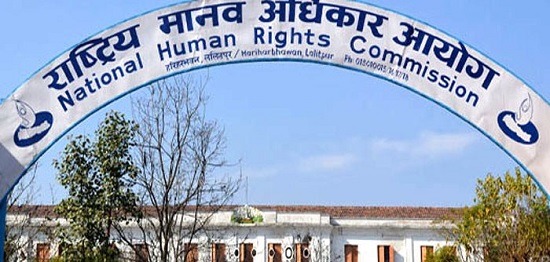Prison monitoring during COVID-19 pandemic: problems of drinking water and electricity dominant

Kathmandu - The National Human Rights Commission has monitored the status of human rights of jailbirds in the pandemic of coronavirus. A team headed by NHRC member Sudeep Pathak had monitored the human rights situation of inmates in Jumla on Tuesday. Thee monitoring team has arrived in Jumla after taking stock of the human rights status of jailbirds in 12 districts of the country.
The human rights watchdog body team also held interaction with security agencies, journalists and human rights defenders in the district. On the occasion, NHRC commissioner Pathak highlighted the importance of human rights protection along with the efforts to prevent and control the pandemic. He further shared that the NHRC monitoring team has arrived in Jumla to take stock the impacts of COVID-19 in human rights sector, situation of jailbirds and detainees and violent activities taking place in the jail of late.
He said that the team would present the report to the government covering the problems facing by the citizens in the time of crisis. Among the key problems shared with the monitoring team are road condition, electric light, Karnali road and human resource in health facilities. Though nine inmates of the district prison had contracted the virus, they are now recovered, it was shared on the occasion.
The jailbirds are facing the acute shortage of drinking water and electricity. “The inmates here are always vulnerable to different diseases as we are still compelled to drink contaminated water supplied from the Tila River”, said Khadkajeet Rokaya, a jailbird. Though the doctors had also diagnosed water-borne diseases among the jailbirds, the authority concerned has been turning deaf ear to the critical issue.









Leave Comment